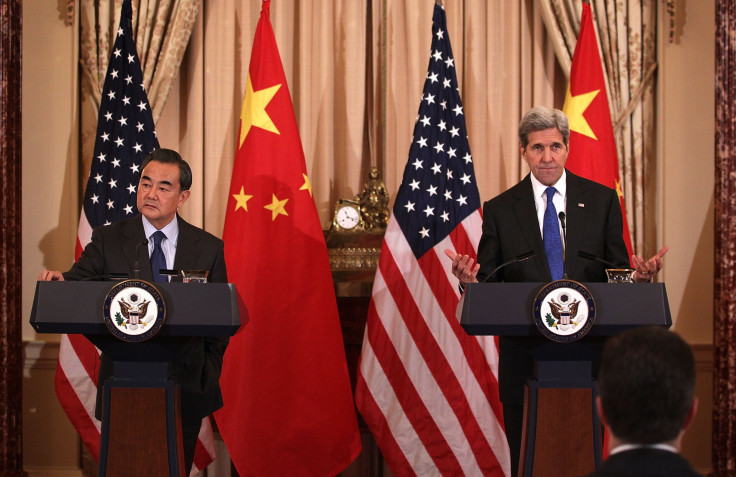South China Sea: China’s Foreign Minister Accuses Philippines Of ‘Political Provocation’ Over Arbitration

China’s foreign minister on Thursday accused the Philippines of “political provocation” by calling for an international arbitration regarding territorial claims in the South China Sea. The arbitration was initiated by Philippines in early 2013 after Beijing refused to remove its ships from a disputed shoal, and claims that the latter’s territorial assertions do not comply with the 1982 U.N. Convention on the Law of the Sea and thus should be declared invalid.
Chinese Foreign Minister Wang Yi said, according to the Associated Press (AP), that the Philippines’ decision of lodging a case with the tribunal in Hague was “irresponsible to the Filipino people and the future of the Philippines.”
China has so far denounced the arbitration process as being illegitimate and has refused to participate in it. The tribunal had decided last October that it could hear the case, and a ruling is expected to be announced later this year, AP reported. China has also conducted massive land reclamation in the area over the past two years, a region that is also claimed by Brunei, Malaysia, Taiwan and Vietnam.
Wang blamed Philippines officials for not negotiating with Beijing and filing the arbitration without China’s consent. “We are neighbors just separated by a narrow body of water,” Wang told the Center for Strategic and International Studies think tank, according to AP, adding: “We want to contribute to the Philippines' economic development.”
Wang, who was in Washington this week for talks with U.S. Secretary of State John Kerry, also said that its military facilities on the island are needed for self defense because other countries have already militarized the shores. The country also reportedly plans to build civilian infrastructure like weather stations and emergency harbors to benefit the international community. Wang also added that while China had stopped reclaiming the land, other countries have not backed off.
Meanwhile, China's defense ministry spokesman Col. Wu Qian criticized U.S. Adm. Harry Harris Jr. over comments about China in front of the Congress, accusing it of militarizing a key waterway and seeking hegemony in East Asia. Harris had said that Beijing has constructed over 3,000 acres (1,210 hectares) of artificial landmass in the region over two years as compared to the 115 acres that is reclaimed by the other claimants in over 45 years. China denied the allegations and said the U.S. and its allies were to blame for raising tensions.
“I have noted that according to media reports, Adm. Harris made his remarks while seeking additional defense budget funds from Congress,” Wu said at a news briefing, according to AP, adding: “We don't interfere in your seeking defense budget funds, but you can't carelessly smear China while asking for more money.”
The blame over raising tensions in the area has been exchanged between both the countries for years now as Beijing claims that the Washington has sent U.S. military ships and planes near the man-made islands to get response from Beijing. However, U.S. Defense Secretary Ash Carter denied the allegations Thursday.
“The reason these activities are getting noticed isn't because the United States is doing something new,” Carter said during congressional testimony on Thursday, according to AP, adding: “We've been sailing in the South China Sea — and will continue to sail wherever international law allows — for decades now. We're not doing anything new.”
© Copyright IBTimes 2024. All rights reserved.






















